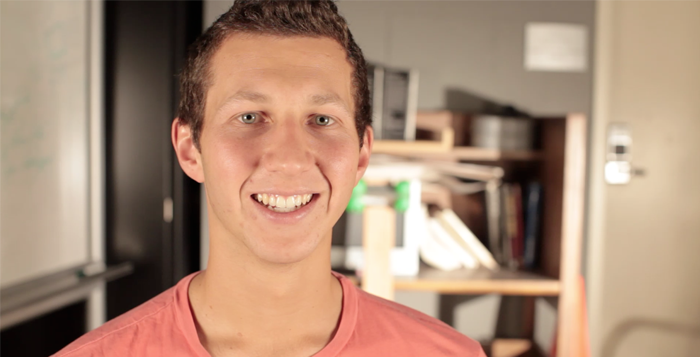EDITORS’ NOTE: In the article below, the Wheel stated that in regards to the AddDropSwap.com website, there was “opposition from the Office of Undergraduate Education (OUE)” in regards to the implementation of the website. College senior Michael Sacks was quoted as saying that after “explaining how the site worked and why it followed all of the honor code, the site was discussed at a dean-wide meeting” and “at the meeting [the Office of Undergraduate Education] officially approved the site” for use by Emory students.
In reality, the OUE, Emory College of Arts and Sciences and Emory University do not support the use of the website. Senior Associate Dean for Undergraduate Education Joanne Brzinski wrote to the Wheel following our publication that the site “misrepresents what it is able to do and [we] are concerned about the misuse of the site by students in ways that are a violation of the Honor Code.”
The article makes it appear that it is possible to ‘swap’ a class between two or more people on OPUS or through the AddDropSwap interface, when in actuality the selected classes are dropped by a student in hopes that the second student adds the class before anyone else.
Brzinski writes that because of this, the OUE is concerned that sites like AddDropSwap.com may promote the sale of places in classes or saving places in popular courses for other students, which is a violation of the Honor Code.
On Nov. 19, 2013, Brzinski met Sacks to offer support for the site in a specific use: to collaborate with specific faculty and departments for the limited use of helping students within a single class find individuals who wanted to trade lab or discussion sections within that singular course.
Brzinski also specified that the matches identified through AddDropSwap could then by passed along to the department so students could be involved in an actual swap within the department, and offered several contacts to facilitate the partnership with certain departments.
On Nov. 25, a request was made to lift the ban on the access to AddDropSwap.com from Emory Computing, and Brzinski responded that until the site found a department to partner with, the ban would remain.
After indications that the Biology department would partner with the website, Sacks was given access to pursue options with Biology and other departments.
Brzinski pointed out that the OUE is currently working on a waitlist system for registration that will aid in the add/drop/swap process that is set to launch Spring 2015.
It is important in publishing information as fact to pursue the story to fullest extent, including verifying sources, quotes and any other information that is presented to the reader as undeniable truth. The Wheel did not contact OUE before publication and both retracts and apologizes for the erroneous article below.
The Emory Wheel is a student-run newspaper that prides itself on presenting quality, truthful reporting to its readers and the previous article did not meet that standard. If any readers have concerns about a story that the Wheel has published, we encourage you to contact us.
Updated on April 11, 5:29 p.m.
Emory students may have an easier way to get the classes they want during the add/drop/swap enrollment period thanks to AddDropSwap.com, a website designed by College senior Michael Sacks to facilitate class swapping through OPUS.
The website is designed to make the course registration process run more smoothly by facilitating swaps between anywhere from two to five people for classes.
After positive feedback from friends and professors and a “soft” launch of over 400 swap requests last year, Sacks said he faced opposition from the Office of Undergraduate Education.
“After explaining how the site worked and why it followed all of the honor code, the site was discussed at a dean-wide meeting,” Sacks said. “At the meeting, they officially approved the site.”
With this approval, Sacks wrote the website is ready for full operation for Emory’s add/drop/swap period, which opens on Monday, April 14.
The website uses the four-digit course number found in both the course atlas and OPUS to match students up with each other based on the section of a class they currently have and the section they would like to swap it with.
Currently, the only solution for getting the section you need is asking around on Facebook or emailing a professor to overload, Sacks said.
Sacks, who is from San Diego, Calif., said the idea for the site struck him during his freshman year, when he encountered a problem getting into the right section for a class he wanted.
“I was enrolled in a time that conflicted with another course that I wanted to take and eventually overheard someone who mentioned that they had the class I wanted as well as a similar issue with times,” Sacks said.
“We swapped in person and ended up happy, but I thought it would be nice if there was a place to find matches using computers.”
Logistically, Sacks wrote he and a friend from home found the website very simple to design.
AddDropSwap.com’s website uses Django, the same web framework Twitter uses, and figuring out how to program five-way swaps.
Additionally, Sacks is launching the website at the University of Southern California and the University of Chicago after friends at those schools complained about similar issues.
“I have come to realize that it works best when the word spreads to as many people as possible, and it has become apparent that I need to be on that campus to make that happen,” Sacks said.
As such, after he graduates in May, Sacks plans to travel to college campuses across the country to spread the word about AddDropSwap.com and hopes to implement it in more schools.
– By Stephen Fowler
Stephen Fowler 16C is the political reporter at Georgia Public Broadcasting, the statewide NPR affiliate in Georgia. He graduated from Emory with a degree in Interdisciplinary Studies and covered the central administration and Greek Life for the Wheel before serving as assistant news editor, Emory Life editor and the Executive Digital Editor from 2015-16.






